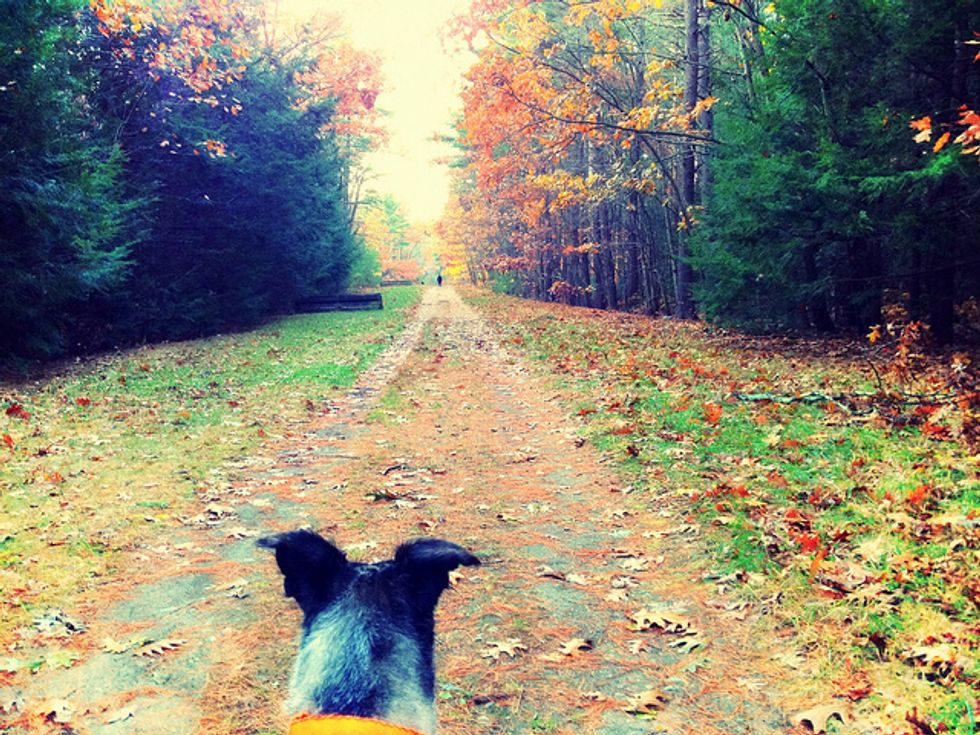Welcome to our weekly 'Ask a Vet from the SF SPCA' feature on 7x7.com. Dr. Jeannine Berger, DVM, DACVB is a board certified veterinary behaviorist who counsels guardians whose pets’ issues are beyond the scope of training. Think of her as a pet shrink…at your service. Ask your own questions in the comments!
Q. I am planning on going hiking with my dog this summer and was wondering what kind of prevention my dog needs.
A: There is nothing more fun than spending a day in the mountains or at the beach with your favorite four-legged partner. If you are looking for some dog-friendly trails, check out DogTrekker.com
There are a few things you want to consider.
1. Flea, tick and heartworm prevention is important. There are many
products available: Topical, oral, combination or single preventative. Most of these products need to be applied monthly. Some are combinations for flea and heartworms or fleas and ticks but not heartworm–it is important that you check the label for the right prevention. If you want to go with a combo product, check with your veterinarian to see which combo makes the most sense for your dog. If your dog has not had heartworm prevention in the past and has not been tested, he needs to be tested first, before prevention can be started.
Fleas are not only irritating (literally), they can also pose some serious health risks. Many animals are allergic and develop inflammation, hair loss and rashes. And, fleas are vectors for tapeworms, and you don't want to deal with that. Heartworms are spread through mosquitoes. Once infected with heartworms, it is very serious and potentially fatal, so prevention is key.
2. Make sure your dog is current on all vaccines, such as rabies and canine parvovirus, distemper virus, and adenovirus-2 vaccines (DHP, "Distemper" or "Canine Booster" vaccine). If you are planning on hiking, you should also protect your dog for leptospirosis. Leptospirosis is caused by a bacteria present in water and spread by the urine of infected wildlife. It causes serious illness and can be deadly if not caught early. There is a vaccine available for the most common subtypes that can affect our dogs, but it’s not part of the routine vaccination protocol for a city dog. Ask your veterinarian if the leptospirosis vaccine is recommended for your dog.
3. Watch for foxtails–they are sticky, spiky grasses that can embed in your dog's skin, especially the paws, ears and nose. We see dogs who have sucked them up into their snouts, where they cause a lot of irritation and possible infection.
4. This last bit of advice applies to all dogs, regardless of what outdoor activities you have planned. Make sure your dog has a name tag and rabies tag on his collar. If your dog is not yet microchipped, get one. And, if he is microchipped, make sure your contact info is up to date with the database.
Happy trails (and tails)!




















